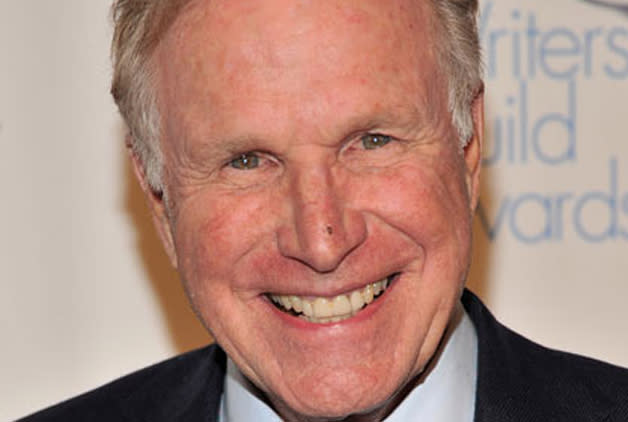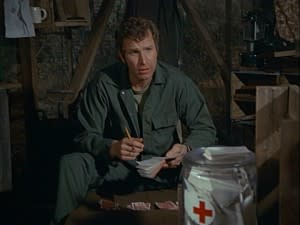Wayne Rogers Dies: ‘M.A.S.H.’s Trapper John Was 82

UPDATED with statement from Rogers’ publicist Dick Guttman: Actor and entrepreneur Wayne Rogers, best known for playing Captain “Trapper” John McIntyre from 1972-1975 on the long-running CBS dramedy M.A.S.H. has died today following complications from pneumonia. His publicist confirmed the news to Deadline: he was 82.
Born in Birmingham, Alabama in 1933, he was a graduate of The Webb School in Tennessee and earned a history degree from Princeton, then served in the US Navy before embarking on his career as an actor. Acting on both television and film, among his early roles he played Slim Davis on the soap Search for Tomorrow in 1959, appeared on Odds Against Tomorrow in 1960, for which he received a Golden Globe nomination. Rogers also co-starred on the ABC Western drama Stagecoach West as Luke Perry from 1960-1961.
Other early roles include appearances on The Invaders, The F.B.I., Gunsmoke, Gomer Pyle, U.S.M.C., Death Valley Days, and The Fugitive. Rogers also had a small supporting role in the 1967 movie Cool Hand Luke.

He was of course most famous for his three-year stint as “Trapper” John on M.A.S.H., an adaptation of Robert Altman’s hit 1970 film based on the book by Richard Hooker. Originally intending to audition for the role of Benjamin Franklin “Hawkeye” Pierce, Rogers found that character too cynical and instead opted for the character whose outlook he considered sunnier. He was known to have enjoyed his time on the series, and became close friends with co-star Alan Alda, but was dissatisfied after Alda’s Hawkeye became the center of the show at, he felt, the expense of his own role, and chose to leave after the third season.
Rogers was the second of three actors to play the character. Elliott Gould originated the role in Altman’s film, and Pernell Roberts famously portrayed him for seven seasons on CBS’ Trapper John, M.D..
Following M.A.S.H., Rogers continued to work steadily. In 1975, he played an FBI agent on the 1975 TV movie Attack on Terror: The FBI vs. the Ku Klux Klan, he starred in the short lived NBC series City of Angels, he starred on the CBS series House Calls, as well as the miniseries Chiefs. He also guest starred five times on Murder, She Wrote.
Among his other television and film roles, he co-starred in the TV film I Dream of Jeannie… Fifteen Years Later, the 1981 film The Hot Touch, and later he played Civil Rights attorney Morris Dees in Rob Reiner’s Ghosts of Mississippi.
“His humor, honesty, knowledge and caring.. not to mention talent.. made him a very special guy and friend. One of the proudest experiences of my career was arranging, at his request, for him to appear in 1988 and again in 1990 as expert witness on the House of Representatives investigative hearing into the possible repeal of the Glass-Steagall Act preventing banks from non-banking activities,” said publicist Dick Guttman. “The word about his testimony moved out very quickly throughout the Capitol, and when we lunched in the Senate dining room, he was table-hopped by a who’s-who of Senators and Congressmen. Wayne, a banker, said it was a prescription for disaster. Pro repeal advocates on the panel argued that these were permitted in Japan and that, as result, eight of the ten most successful banks in the world were Japanese. Wayne predicted correctly the resultant problems those banks would experience. He definitely was a key factor in preventing the repeal. Unfortunately, the repeal prevailed a dozen years later, and we had to live the consequences. Here was a banker arguing regulation of banks. That was Wayne, clear-headed and persuasive in his knowledge.”
Rogers, who was a banker himself with interests in N.C. and CA, argued before the House of Representatives Judiciary Committee along with Nobel prize-winning economist Lawrence Klein in favor of maintaining the Glass-Steagall Banking Act. Together they said if to government decided to repeal the Act — which was passed in 1933 to keep the public from being adversely affected by the risks of Wall Street by keeping banks from trading in securities — they would abuse public trust.
‘Once you let these guys go wandering off into some other business, they’re going to lose money,’ he said. ‘They don’t know what they are doing.’ Neither did most of Congress, he would find out when he asked them a simple question: “How many have you read the Pecora hearings?’ ” None had.
As a citizen of this country, he then went onto explain to the nation’s lawmakers, about an important piece of their own history on the Hill — Ferdinand Pecora, the committee’s counsel, was instrumental in calling out Wall Street’s risky practices, and from those hearings arose the Securities and Exchange Commission, the Federal Deposit Insurance Corp., and the Glass-Steagall Act. All together, establishing all three grounded the nation’s financial system for the following 60 years.
According to the UPI report at the time, at one point the actor had a tense exchange with Rep. Doug Barnard, D-Ga., who was a supporter of repealing the law. Barnard joked that Rogers ‘had spent too much time in Korea,’ referring to the country where M.A.S.H. was set.
Rogers held his ground at Barnard’s condescension and said that Congress should push non-banking companies which were taking advantage of loopholes in Glass-Steagall out of banking-related fields while banks should stick to its core business. He said if banks move into non-banking fields such as securities underwriting, insurance and real estate development, they will abuse the public trust.
Congress repealed Glass-Steagall in 1999 and less than a decade afterwards, America’s financial system went upside down, which prompted Congress to introduce the Dodd-Frank Wall Street reform bill in 2010. However, Rogers said at the time that even that was not enough because there was still no great barrier in place to keep commercial banks from speculative investment banking.
Rogers became well known as a business investor, having started doing so knowing that his income as an actor was not necessarily reliable long term. He eventually earned a sizable income from real estate and other ventures, penning the book Make Your Own Rules about his experiences, and was a regular panelist on the Fox Business Network show Cashin’ In. He also served on the Board of Directors of the electronics components manufacturer Vishay Intertechnology, Inc., and as the head of Wayne Rogers & Co., a stock trading investment corporation.
He is survived by his wife Amy Hirsh, whom he married in 1988.
Related stories
Media Stocks Stumble Amid Market Fears About China And Mid-East
'The Meredith Vieira Show' To End After Two Seasons
'Rogue One', 'Finding Dory' Among Most Anticipated 2016 Movies: Fandango Survey
Get more from Deadline.com: Follow us on Twitter, Facebook, Newsletter
